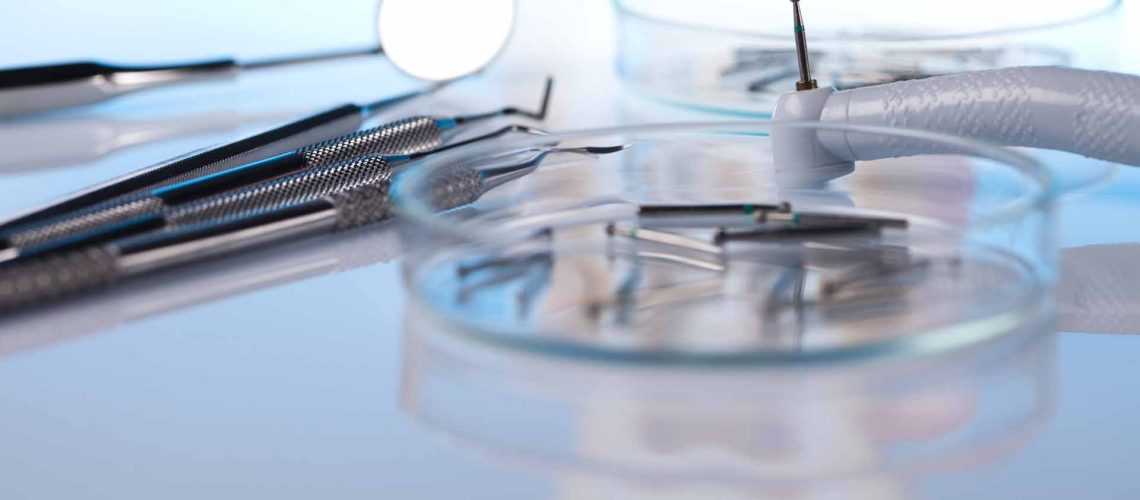Biocompatibility refers to the ability of a material or device to perform with an appropriate host response in a specific application. In dentistry, biocompatibility is the ability of a dental material or device to function in harmony with the body without causing adverse reactions. Our Mesa dentists, our products and services all serve this aim.
Biocompatible dentistry—also called holistic dentistry or natural dentistry—is gaining popularity due to its effectiveness, contribution to lasting human health, and overall aesthetic appeal. But what is holistic dentistry?
Biocompatible Materials in Dentistry
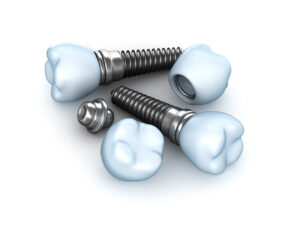
Biologic dentistry uses materials that are biocompatible, meaning they are non-toxic and do not cause adverse reactions in the body. These dental materials include ceramic, glass, and composite resin.
Conventional dentistry, on the other hand, often uses restorative materials that are not biocompatible, such as amalgam (silver) fillings and metal implants. It may also use biologically unsafe practices like harsh gum cleanings, which can force bacteria into the bloodstream.
Advantages of Biocompatible Dentistry
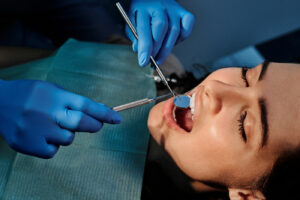
Biocompatible dentistry offers many advantages over conventional dentistry. For example, biocompatible materials such as ceramic and composite resin are tooth-colored, making them a more natural-looking option for filling cavities and making repairs. Additionally, biocompatible materials do not contain toxic substances, making them a safer option for both the patient and the dentist. Just compare ceramic vs titanium dental implants.
Another advantage of biocompatible dentistry is that it helps to preserve natural tooth structure. Biocompatible materials are often used in minimally invasive procedures, such as tooth-colored fillings, which remove less of the natural tooth structure. This helps to preserve the tooth’s strength and function while also providing a natural-looking result.
Finally, biocompatible dentistry is better for the environment. Biocompatible materials are often made from natural, sustainable materials and do not contain harmful chemicals. This reduces the impact on the environment and helps to create a more sustainable future for dentistry.
Dangers of Conventional Dentistry Materials
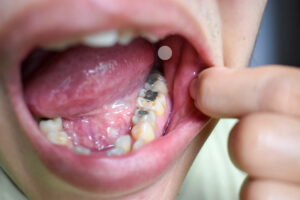
Amalgam (silver) fillings, which are made of a mixture of metals, have been used for decades in dentistry. However, they have been found to contain large amounts of mercury, which can be toxic to the body. Additionally, metal implants, such as those made of titanium, can cause allergic reactions and can also lead to metal poisoning.
Conventional Dentistry Adopting Biocompatible Materials
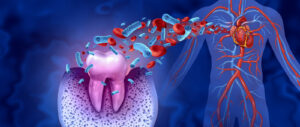
While conventional dentistry has traditionally relied on non-biocompatible materials such as amalgam fillings and metal implants, there is a growing trend towards the use of biocompatible materials. This shift is driven by the intrinsic benefits of biocompatible materials, such as their natural appearance and lack of toxicity.
Many dental practitioners are beginning to recognize the advantages of biocompatible materials and are incorporating them into their practices. For example, tooth-colored composite resin fillings are becoming increasingly popular as an alternative to amalgam fillings. This is because composite resin can be matched to the color of the patient’s tooth, making it a more natural-looking option. Additionally, composite resin is a non-toxic material, which is safer for both the patient and the dentist.
Another area where conventional dentistry is adopting biocompatible materials is in the use of ceramic and glass-based materials for dental implants. These materials are biocompatible and do not cause allergic reactions or metal poisoning. Additionally, ceramic and glass-based materials can be matched to the color of the patient’s tooth, making them a more natural-looking option for dental implants.
In addition to these advantages, biocompatible materials also help to preserve natural tooth structure, are better for the environment and are safe for the patient and the dentist.
As a result, it’s clear to see that the use of biocompatible materials in dentistry is becoming increasingly popular. Dentists are recognizing the benefits of biocompatible materials and are incorporating them into their practices, which is good news for patients who want a more natural-looking, safer and sustainable option for their dental needs.
Key Takeaways
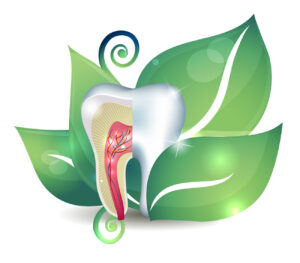
- Biocompatibility in dentistry refers to the ability of a dental material or device to function in harmony with the body without causing adverse reactions.
- Biocompatible materials such as ceramic, glass, and composite resin are non-toxic and offer a more natural-looking option for fillings and repairs.
- Biocompatible dentistry helps to preserve natural tooth structure, is safer for patients and dentist, and is better for the environment.
- Finally, conventional dentists are beginning to incorporate biocompatible materials because they see their inherent sustainability, healthfulness and aesthetic appeal.
To get started on your journey to better health, contact Elite Smiles today.

